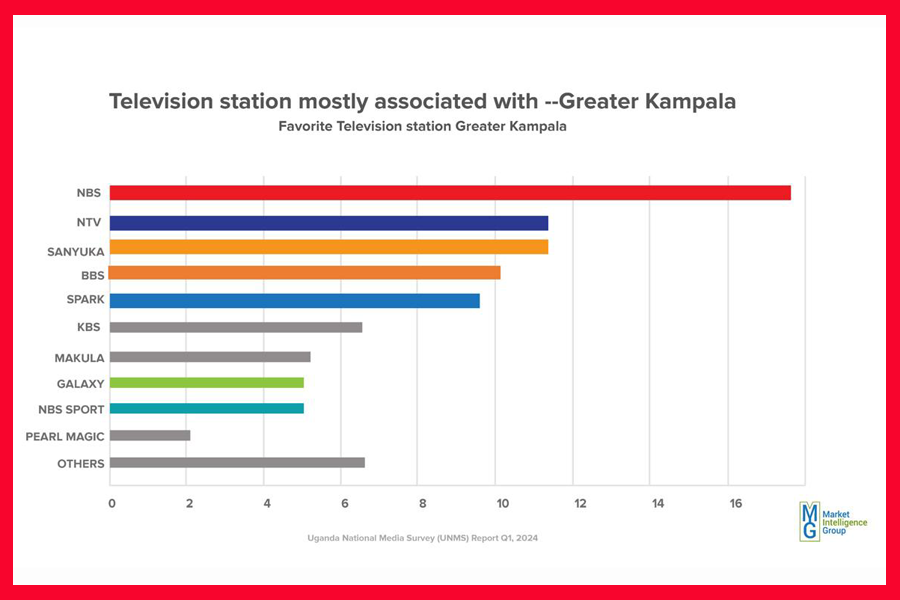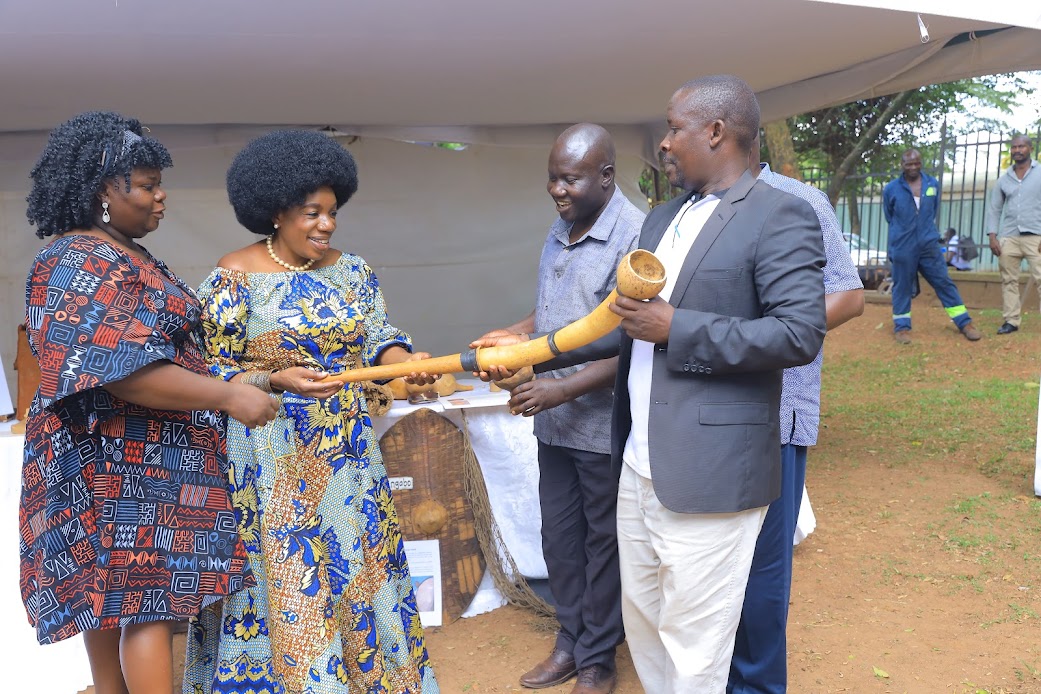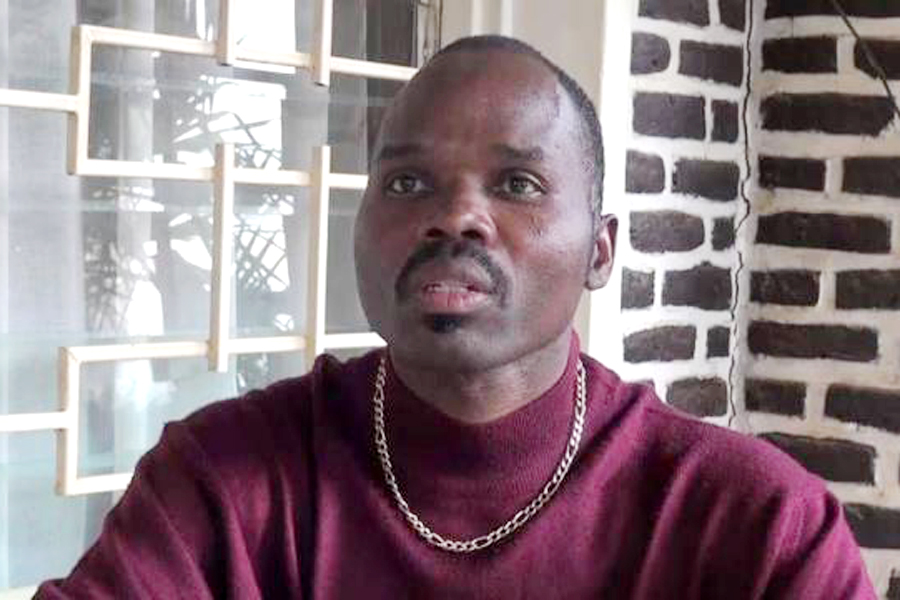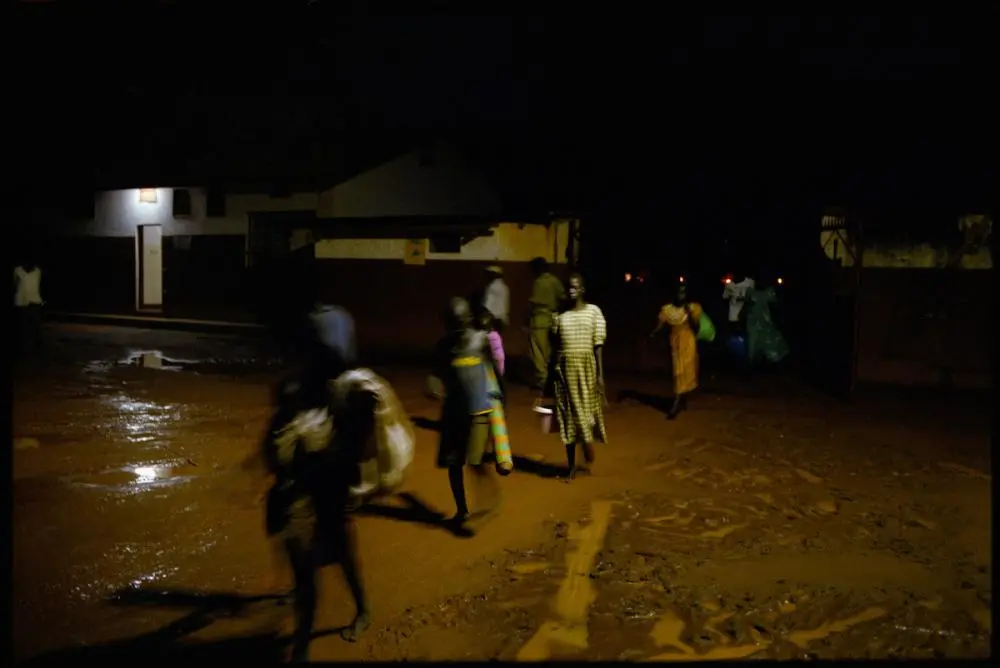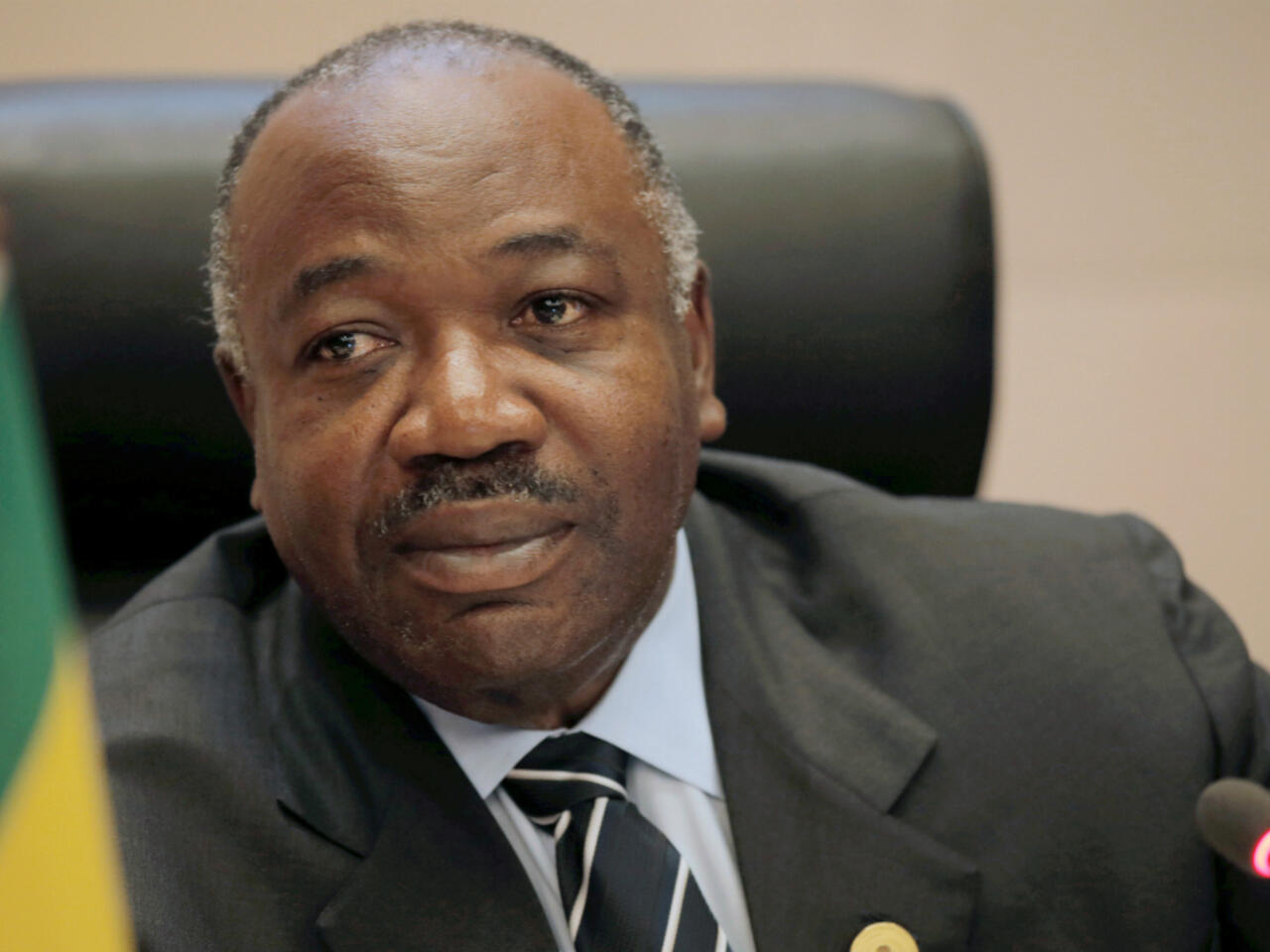Inside UK's gambit in Uganda's corruption chessboard
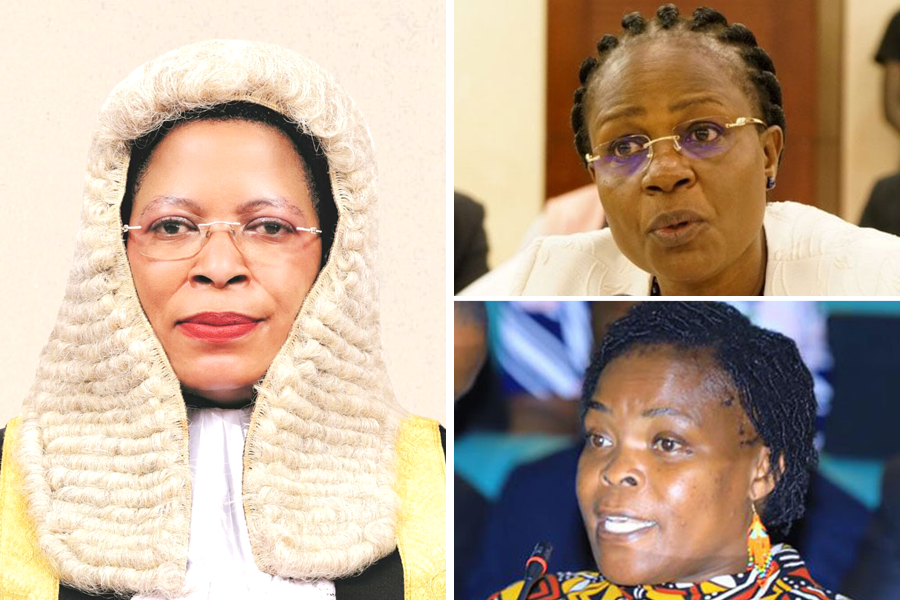
On Tuesday, the UK made a tactical manouvre by hitting the apex of Uganda's politics with tough sanctions on the Speaker of Parliament
THE GAME | In a statement on April 30, the UK government imposed sanctions on Speaker of Parliament Anita Among and two former ministers, citing their involvement in what it described as "corruption at its worst, which has no place in society".
Joining Among in facing sanctions are former Minister of Karamoja Affairs Mary Goretti Kitutu and her former junior minister Agnes Nandutu.
Speaker Among had faced allegations of misappropriating taxpayer funds through extravagant per diem expenditures and disguised corporate social responsibility gifts.
In response, she denounced her critics as "bumshafters," attributing their campaign against her to her support for the anti-gay law passed the previous year.
The imposed sanctions encompass freezing the trio's assets within the UK, imposing travel bans preventing their entry into the UK, and implementing restrictions barring UK citizens and businesses from engaging with them.
Explaining the rationale behind the sanctions, the UK government cited the trio's purported involvement in corruption and misallocation of resources, particularly iron sheets meant for vulnerable communities in Karamoja, northern Uganda.
"These sanctions target individuals who have enriched themselves at the expense of the Ugandan public and failed to uphold the standards of transparency and accountability expected of public officials," stated the UK government.
In March, President Museveni defended Among during a public address in Bukedea, amid mounting criticism on social media regarding alleged corruption and lavish spending within Parliament.
"I have been hearing some people attacking her and other MPs... sometimes they may make mistakes, but within the NRM, we always come together to help and guide them," the President said.
He emphasised the importance of unity within the government system and commended Among for her cooperation, which he believed contributed to conflict prevention.
However, criticisms continued to escalate, with online backlash intensifying under the hashtag #UgandaParliamentExhibition, focusing on alleged financial mismanagement within Parliament and directed at Speaker Among.
Museveni further addressed concerns about foreign interference, labeling traitors as those who collaborate with foreign interests. He reiterated the importance of unity and praised Among for her efforts in maintaining it.
The ramifications of these sanctions extend beyond individual repercussions. The affected individuals stand to lose access to their UK-based financial assets, encounter limitations in conducting business with UK entities, and are barred from traveling to the UK. These measures aim to compel them to adopt more transparent and responsible practices.
Deputy Foreign Secretary Andrew Mitchell emphasised that these actions are part of a broader UK initiative to promote international transparency and combat corruption, particularly in regions where it disproportionately affects the poor and vulnerable.
This move sends a clear message that corrupt practices will bear tangible consequences on the global stage.
 Speaker Anita Among | Courtesy
Speaker Anita Among | Courtesy
Mr Marlon Agaba, the executive director of Anti-Corruption Coalition Uganda, welcomed the sanctions, expressing concern over widespread corruption within Uganda's government.
He highlighted the need for accountability, citing instances of selective prosecution where high-ranking officials evade consequences.
“The external pressure that comes that kind of impunity is welcome. And these people are stealing our money should know that there are other mechanisms that can be use it to bring them to account,” he said.
The recent parliamentary exhibition brought to light a concerning pattern of financial mismanagement within Parliament, implicating various individuals, including the Speaker.
Despite these revelations, no substantial measures have been taken by oversight bodies like the Auditor General, the Inspector General Government, or the President, beyond the dismissal of a few ministers.
Agaba stressed the importance of external pressure in combatting impunity and welcomed any steps aimed at tackling such corruption.
"It's beneficial that these sanctions target specific individuals rather than penalizing the entire country," he stated.
He elaborated on the repercussions faced by those sanctioned by the UK or EU, highlighting the inconvenience caused by restrictions on banking and business transactions involving UK-affiliated entities.
However, Emmanuel Dombo, the director of communications at the National Resistance Movement secretariat, questioned the rationale behind the UK's sanctions, arguing against the concept of double jeopardy.
"The principle of innocence until proven guilty should be respected. If individuals are already under prosecution by domestic agencies, external sanctions undermine this fundamental legal tenet," he asserted.
Political analyst Patrick Wakida echoed Dombo's sentiments, criticising the UK's "selective approach" to sanctions.
"Why single out the Speaker? Numerous government officials, including ministers, were implicated in the iron sheet scandal. It seems biased and raises questions about the UK's motives," Wakida said.
He questioned why ministers like the Prime Minister and the Finance Minister, who were also implicated, escaped sanctions.
Renowned journalist and lawyer Agather Atuhaire expressed skepticism about the UK's focus, suggesting that perhaps they only acted on cases they could verify.
"The UK might have targeted those they could confirm involvement in the scandal. Further clarification could be sought from the UK High Commission," she suggested.

Wakida criticised the UK for losing sight of their objectives, suggesting that by targeting individuals, they risked diluting their message and losing credibility.
He suggested that if the UK sought to address corruption effectively, they should have targeted the entire Ugandan government, given widespread complicity in corrupt practices.
In response to the UK sanctions, the Ugandan Parliament in a statement on Tuesday again attributed blame to the anti-gay legislation, implying ulterior motives behind the sanctions on Speaker Anita Among.
The statement claimed that the iron sheet issue was merely a cover-up for the true, undisclosed motive behind the sanctions.
"This motive," said Chris Obore, Parliament's director of communication, "stems from the Speaker's position on the recently enacted Anti-Homosexuality Act."
Wakida argued that if the Speaker's sanction was related to the anti-gay law, then the entire parliament, including the president, should be held accountable.
Agaba viewed individual sanctions as a means to hold accountable those who act with impunity, emphasizing the need for Parliament to address the concerns raised by citizens, including issues of financial accountability.
“Parliament needs to address the concerns raised by young people during parliamentary exhibitions, including providing evidence regarding the destination of funds into individuals' accounts," he emphasised.
He criticized the Speaker for obstructing debates on accountability matters and noted her dismissive attitude towards MPs raising concerns about corruption.
The incident involving MP Theodore Ssekikubo's attempt to discuss corruption allegations during parliamentary proceedings was cited as an example of the Speaker's interference with accountability debates.
Mr Agaba urged Parliament to address these issues transparently, highlighting the need for accountability and responsiveness to citizens' concerns.
Dombo emphasized Uganda's status as an independent nation with sovereign authority to address its internal issues, suggesting that the UK's approach was not in line with typical diplomatic protocols.
"In addition, the United Kingdom is a longstanding partner with whom we've collaborated on numerous occasions. Their conduct in this matter seems out of step with traditional partnership dynamics, which usually involve communication through diplomatic channels to address concerns," he remarked.
He questioned the UK's motives, pointing out the omission of other implicated individuals from the sanctions list.
Ms Atuhaire expressed satisfaction that those accustomed to escaping accountability in a system that turns a blind eye to corruption would now face repercussions, albeit not as severe as deserved.
"While it may not be commensurate with their offenses (given that leaders who abuse their power to exploit their constituents merit harsher punishment), they will nonetheless experience some form of inconvenience and accountability," she noted.
But Mr Dombo emphasised the importance of maintaining strong and mutually beneficial relationships with partners like the UK, suggesting that the UK's actions may stem from their global influence rather than solely from stated objectives.
"If we consider the reasons provided alongside the exemptions made, it raises suspicions that the sanctions may be motivated by factors beyond their stated objectives," he suggested.
Mr Wakida however highlighted that the two ministers implicated in the iron sheet scandal were caught red-handed and could be subject to punishment as desired. He acknowledged the impact of international sanctions on their reputation and mobility.
"Facing international sanctions is a significant consequence. It restricts their ability to travel and diminishes their credibility in the eyes of the public. These individuals are already facing consequences, having been removed from their ministerial positions," he observed.


